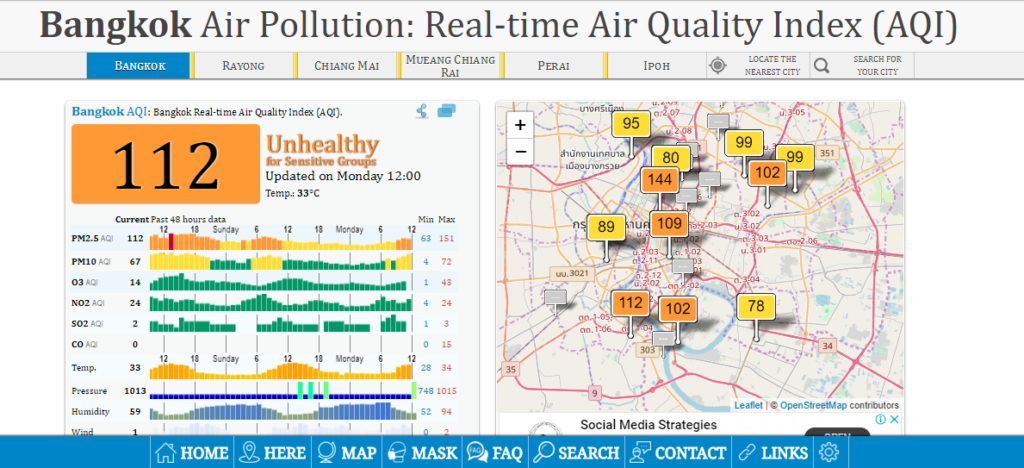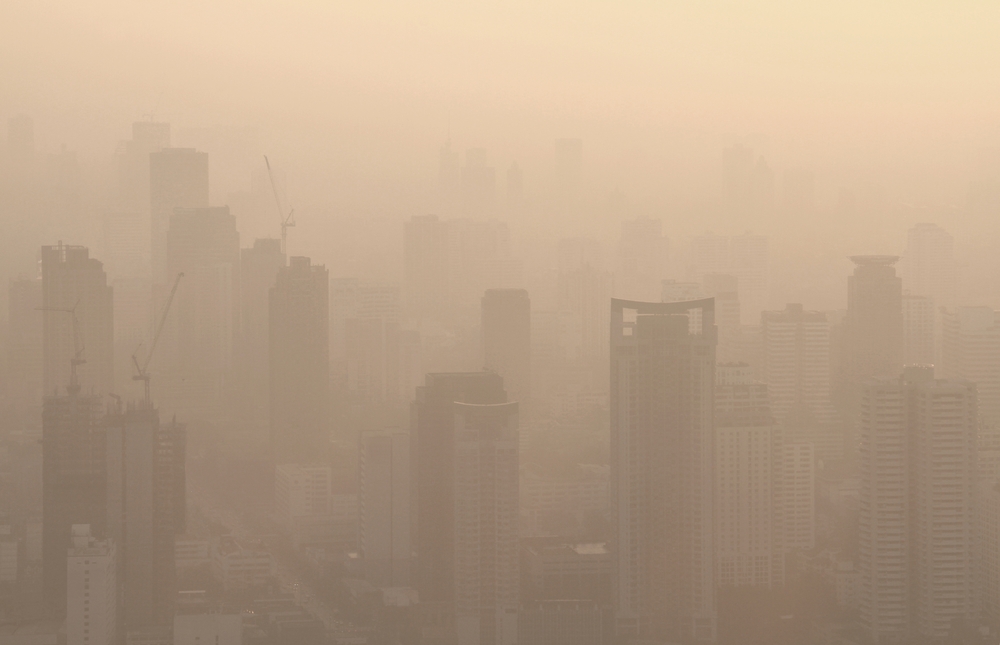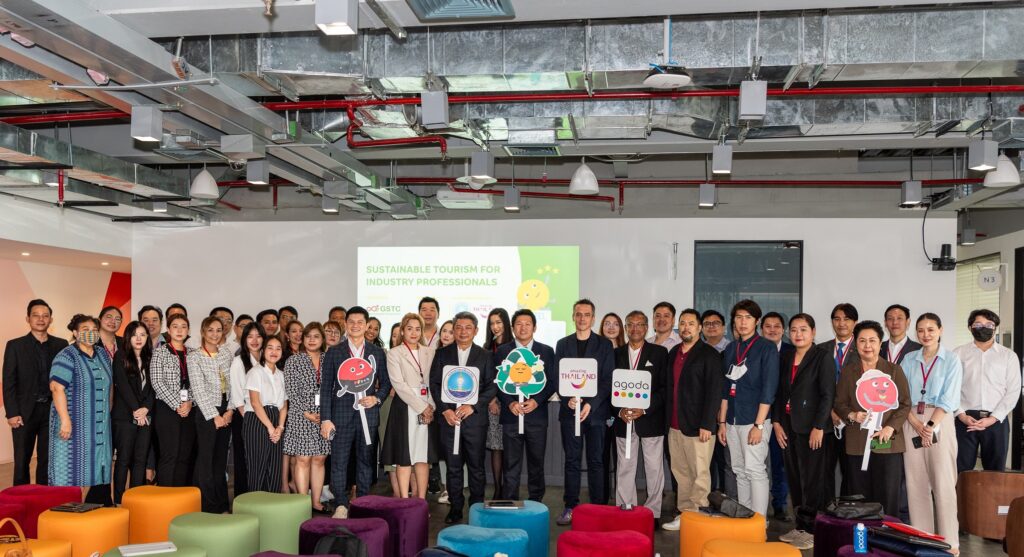Residents of Bangkok and its nearby provinces have endured hazy days and choking air the past few days that forced schools and child centres to close and people to stay indoors.
The Air Quality Index (AQI) reading spiked over the dangerous levels of 150 on Thursday morning. Later that same day, some stations were reporting levels as high as 340. “Good” and “Moderate” air quality levels range from 0 to 100. This catapulted Bangkok as one of the world’s most polluted cities for a few days.
Pollution has built overhead Bangkok where no heavy, air-cleansing rain has occurred since 29 December. The cool and dry, cloudy weather reportedly trapped emissions from area factories and vehicles have built up in the lower atmosphere leading to a “smog”.
The government deployed the fire department and drones to spray water to help particles in air descend. However, this action is like putting bandaid on a wound, a well-thought, long term solution is needed to combat Bangkok’s growing problem in air pollution.

At the time of writing, Bangkok’s AQI reads 112, which is unhealthy for sensitive groups such as children, elderly, and pregnant women. While the air quality has improved over the weekend thanks to the small efforts of the government, the upcoming Chinese New Year celebrations posed a threat that the AQI will spike again.
Tourism Authority of Thailand (TAT) claimed that “all events and festivals remain as scheduled, including the TAT’s Chinese New Year 2019 celebrations planned in Bangkok at Siam Square (4 to 6 February) and Yaowarat Road (5-6 February), Chiang Mai at Maya Lifestyle Shopping Centre (5 to 6 February), and Phuket at Central Phuket Floresta (5 to 6 February).”
Some of the age-old traditions in Chinese New Year are burning joss paper and incense and extravagant fireworks. Health experts, however, warned that the widespread burning of Chinese joss papers and incense during the celebrations could “worsen air pollution and pose severe health threats”.

Doctors are urging people not to burn joss paper as offerings over Chinese New Year. They’re also recommending to limit incense-burning and fireworks during this year’s celebrations to prevent hazardous emissions.
Health Department director-general Dr Panpimol Wipulakorn cautioned that exposure to air pollution from the burning of Chinese joss papers and incenses can cause acute sicknesses such as eye irritation, sneezing, breathing difficulties and headache, while prolonged exposure to the toxic smoke could even cause cancer.
“The smoke from Chinese joss papers and the burning of incense contain many kinds of hazardous heavy metals and carcinogens. In an examination of the leftover ashes, we found a very high amount of carcinogens,” she said.



 share
share










































